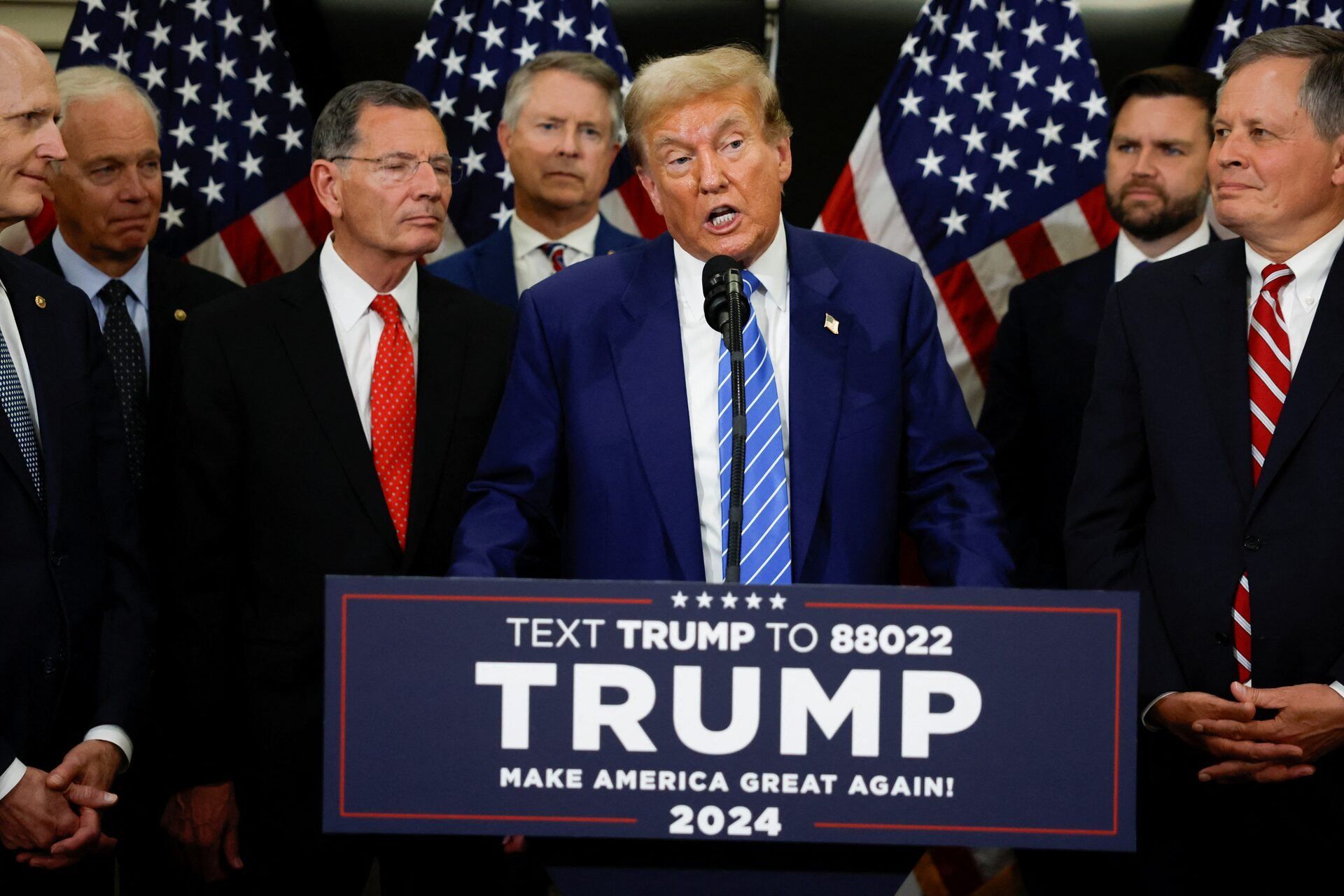Convicted former President Donald Trumpreturned to Capitol Hill on Thursday — the first time since his supporters attacked Congress on Jan. 6, 2021 — to deliver a behind-closed-doors speech to GOP legislators. Rep. Matt Gaetz described the mood as a “pep rally” meant to unify the Republican Party ahead of what is sure to be a grueling election.
Trump made reference from the podium to the divides within his own party, reportedly asking far-right Rep. Marjorie Taylor Greene, of Georgia, to take it easy on House Speaker Mike Johnson. Greene ousted Johnson’s predecessor for working with Democrats to pass a spending bill and attempted to do the same to Johnson in April.
The occasion also marked the first time Trump and Senate Minority Leader Mitch McConnell have been in the same room since the Jan. 6 attacks. McConnell previously said he held Trump “practically and morally responsible for provoking the events” of that day but now says he intends to vote for him — and to step down as the GOP’s Senate leader later this year.
Trump’s speech hopped from China (“they’re ripping us off”) to trans athletes (he’s anti) to border security (not happy), but he had a clear message for the GOP on abortion: Chill out! He reportedly said that Republicans keep losing because they endorse extreme positions on the issue and said he supported abortion policy that includes exceptions for rape, incest, and the life of the mother. We’re watching for signs the GOP takes his more moderate tack, and whether that helps them at the ballot box.
